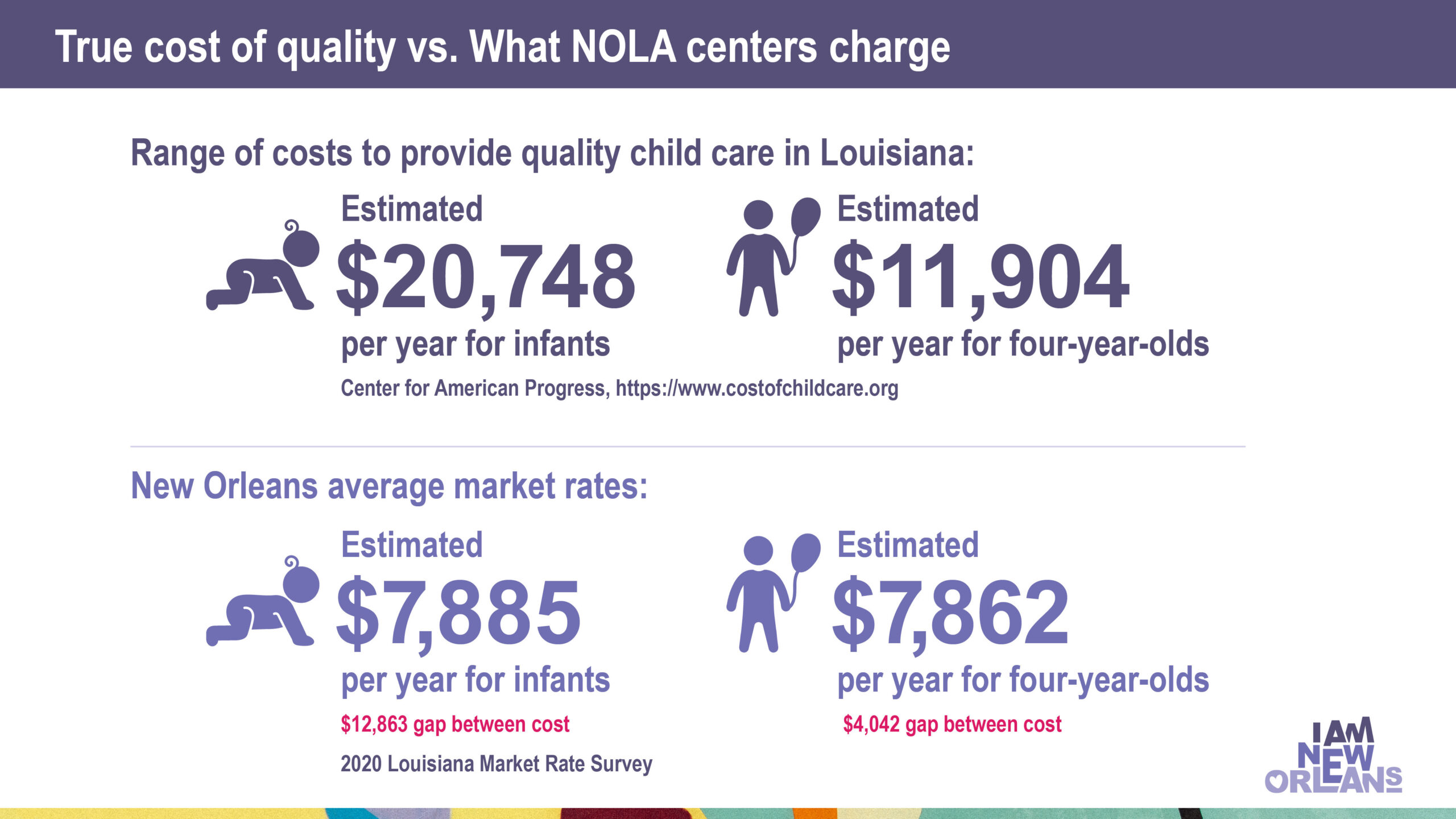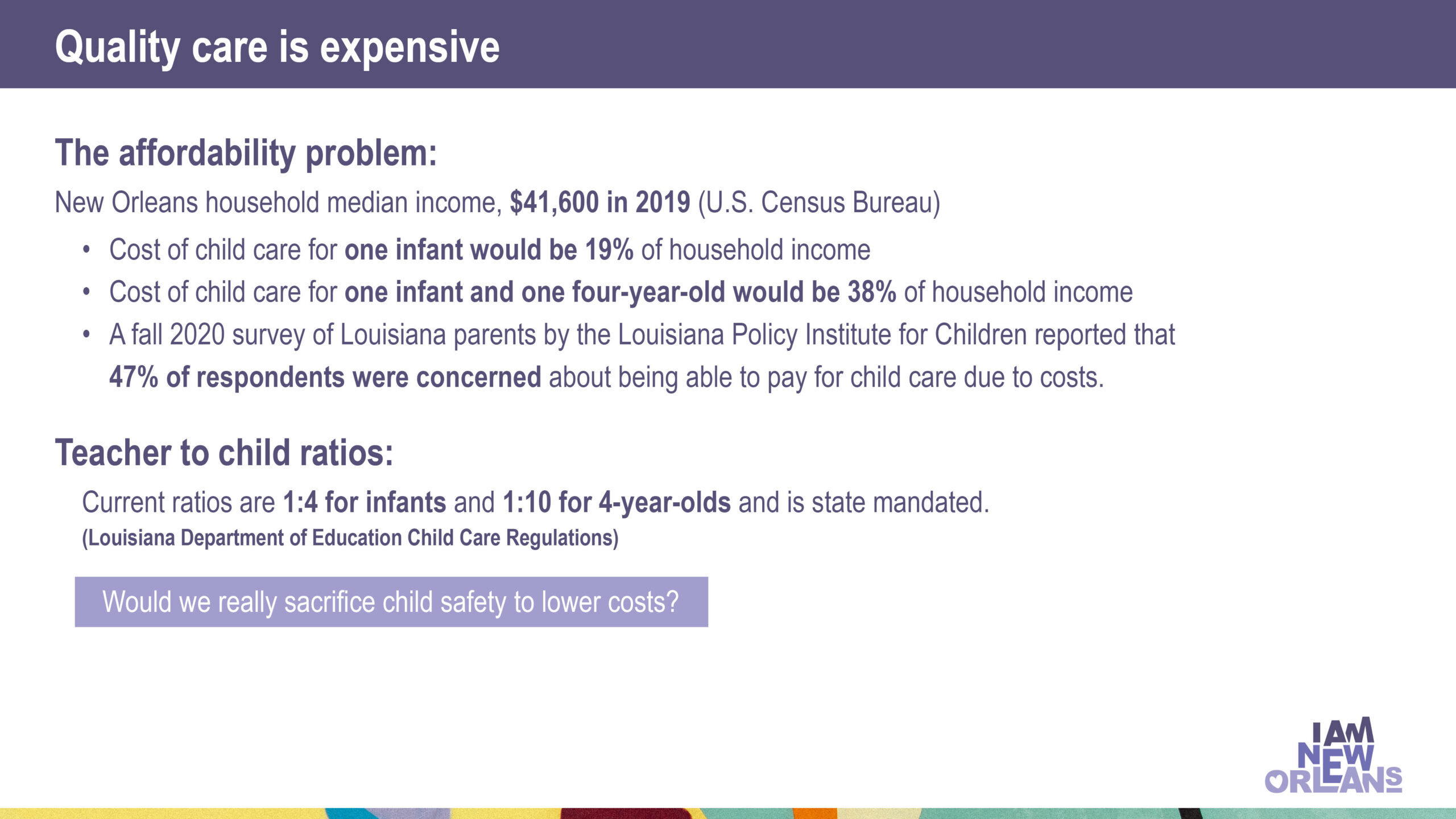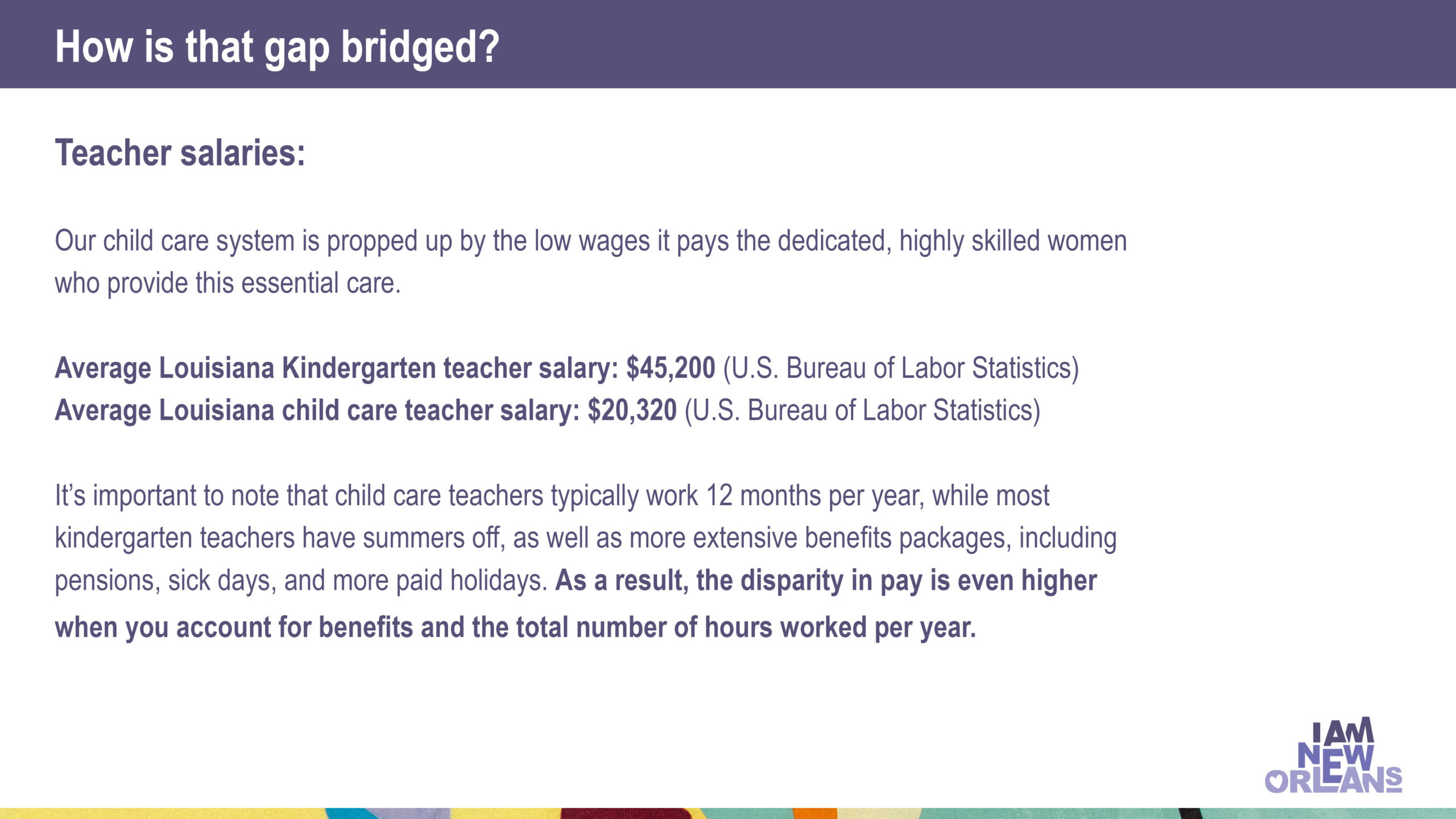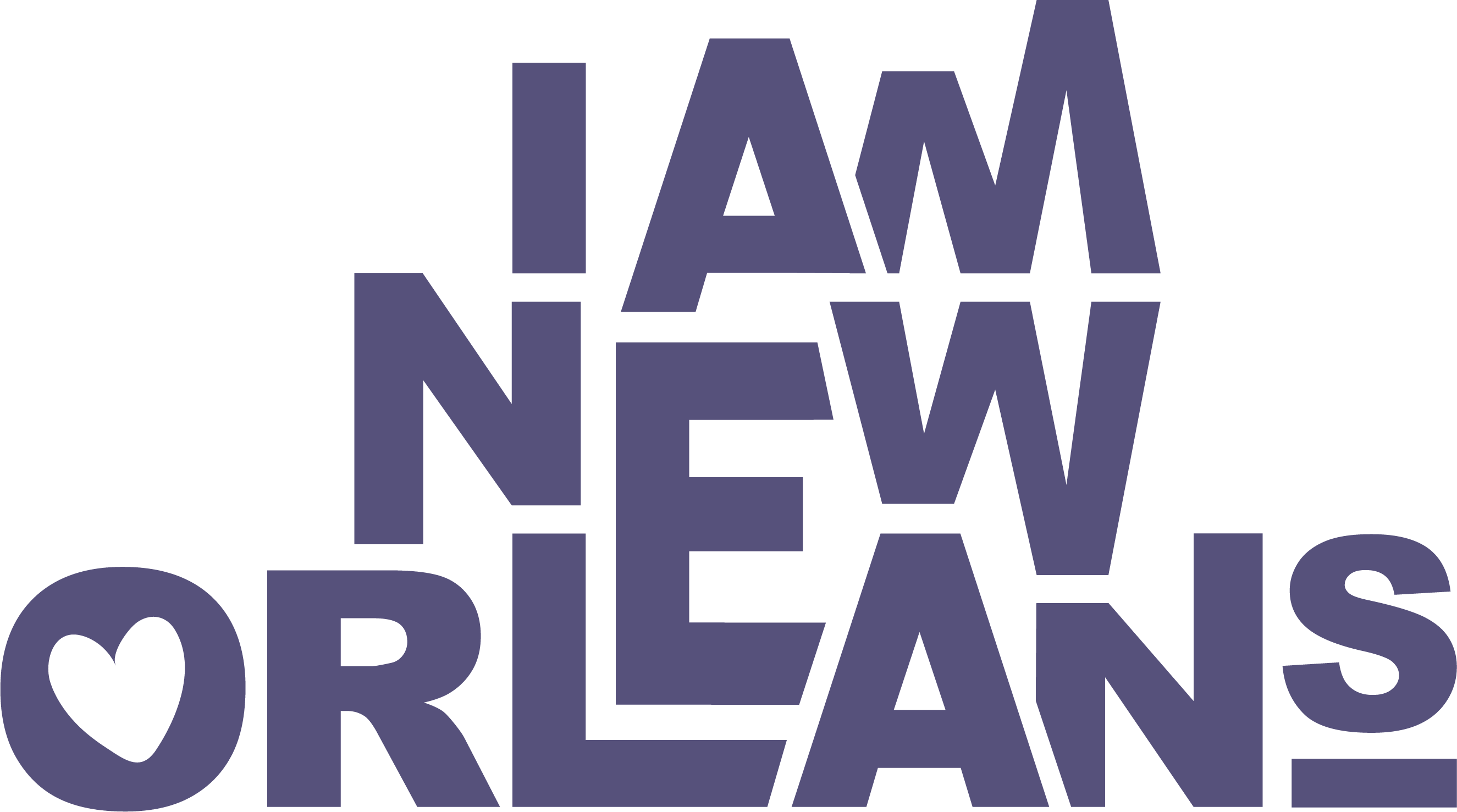Early Learning Teachers –
The Bridge to a Brighter Future
"Watching a child learn to read is like watching a real-life magic trick. I can’t describe the feeling of wonder and amazement."
Kenny Francis, Director of Policy and Advocacy at the Agenda for Children Tweet
UPDATE: In April 2022, voters approved an unprecedented $21 million annually for early childhood education, funding about 1,000 seats. This comes after the city in 2018 piloted funding early childhood education with $750,000, doubling that to $1.5M in 2019 and $3M in 2020.
A teacher at Wilcox Academy of Early Learning, Briceshanay Gresham gushes about teaching 3-year-olds. “I love Mondays,” she said.
“Every day is a new page. Being able to make the classroom this living and breathing thing gets me out of bed and to work. If I’m having a bad day, (the children) bring the love you need that brings love to your heart.”
Gresham joined our I am New Orleans panel to discuss early learning, what it will look like post-COVID-19 and the need for sustainable funding.
“Childcare is the infrastructure of life,” Gresham said.
She and other early learning panelists talked about their role shaping children’s social-emotional well-being and helping them be kindergarten ready and life-long learners.
“Watching a child learn to read is like watching a real-life magic trick. I can’t describe the feeling of wonder and amazement,” said moderator Kenny Francis, director of policy and advocacy at the Agenda for Children.
Francis said a lack of sustainable funding for early learning threatens the industry, including access, quality and retention of teachers. He said pay disparity – early learning teachers in Louisiana earn around $20,000, less than half of what kindergarten teachers earn according to the U.S. Bureau of Labor Statistics – and a lack of benefits contribute to why 40% of teachers leave the profession annually. (Nobel Prize-winning economist James Heckman estimates that for every dollar invested in early childhood education, the return on investment is $13).

Full panel discussion
An unprecedented $773 million in federal stimulus dollars recently went to the state’s childcare centers to help right-size some of the losses created by COVID-19 and expand access to low-income families. But Francis said the state won’t maximize those benefits until it identifies permanent funding solutions. Agenda for Children recently published a policy brief advocating for pandemic pay for workers.
“The reality is that we have subsidized the system on the back of women, women of color, who do this work,” said Francis, who used to be an early learning teacher. He said 90% of teachers are women.
Barbie Deveau, who teaches 1- and 2-year-olds at Abeona House Child Discovery Center in New Orleans, said she creates lessons plans like any other K-12 teacher and on a typical day she’s helping children count, learn their ABCs and say names.
“There is a lot of social emotional guidance. …Skills they carry over in life,” she said, adding that centers are designed so that every interaction fosters a child’s learning.
“They come in and are ready to absorb anything we show or tell them. They’re like a sponge. Their hearts are open, their minds are open. Nobody has told them not to do that.”



Over the past year, COVID-19 has complicated teaching and learning. Some centers closed, never to reopen. Others tried virtual reading hours with their students. And for those centers who have re-opened, they’ve reimagined their space to limit interactions between classes and parents, increased cleaning protocols, and now are administering regular COVID testing and temperature checks.
One of the biggest changes – and challenges – is teaching through facemasks. Panelists said their first lessons with children when they returned to face-to-face instruction explained why they looked like “astronauts” wearing personal protective equipment.
“Infants need to see your face and all your expressions,” said Brandy Sanchez, a teacher at Kids of Excellence in New Orleans. She said teachers now describe their emotions and help children identify other non-verbal cues.
“We’re (now) detailed about how we’re reacting, (such as) these are my happy eyes,” she said.
Panelists said they love teaching and advocated for sustainable funding that helps children and teachers thrive.
“The bottom line, people don’t want fancy things. They want a decent lifestyle. They want to care for their families and invest in their families,” said Rochelle Wilcox, director of Wilcox Academy of Early Learning. “Oftentimes teachers leave the field they love to go into a field that (pays) for the lifestyle they deserve.”
Listen here to the event summary and stay tuned for our next I am New Orleans event focused on food equity.

